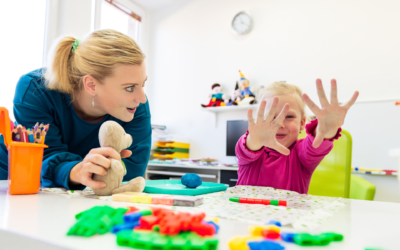Today marks the end of World Interfaith Harmony Week and we would like to use the idea of shared values within a culture to highlight how abuse within faiths, religions, and spiritual communities can manifest, how to spot it, and how you can help end it for good.
By recognising and identifying the causes and outcomes of abuse within religious and cultural settings, we can raise awareness and create safer communities, encouraging everyone to adapt their belief systems into harmonious and peaceful ones for the greater good of all.
What is Religious and Spiritual Abuse
Religious abuse, also referred to as spiritual abuse, is any type of abuse that uses religion, spirituality, or a belief system to harm, control, or manipulate an individual or a group.
This type of abuse usually takes place in settings like places of worship and community areas however it can also take place within families, friendships, and other interpersonal relationships. Manifesting in many ways within various faiths and communities, religious abuse is regularly ignored or swept under the rug. In some religions, individuals who have been subjected to this form of abuse are exiled and ridiculed out of their communities when they speak up. They can be subjected to even more abuse at the hands of the perpetrator and the people around them.
This type of abuse can cause lasting physical and emotional damage to a victim. Other issues like homelessness, isolation, being threatened with deportation, and alienation from the culture that they have always lived in can occur as a result.
Sometimes, religions and belief systems can act as a barrier to justice and can encourage a culture of silence, leaving the victim unable to speak up about their abuse due to shame, fear, and trauma that is embedded in their lives because of the cultural norms that they, their families and the communities that they are a part of conform to. Recognising and bringing attention to this issue within religious, spiritual, and cultural settings is crucial in breaking the silence and starting the conversation.
How to spot this type of abuse
Spotting the signs of religious and spiritual abuse is essential to help break the cycles of this type of abuse. It would be helpful to understand how this abuse takes place and what it looks like.
The main types of abuse are:
- Physical
- Emotional
- Sexual
- Financial
- Verbal
Some ways in which abuse is demonstrated within religious settings are:
- Exploiting power dynamics – using positions of power to inflict abuse on individuals.
- Coercion – dominating, intimidating, and manipulating an individual to gain control over them.
- Manipulation – influencing and controlling an individual.
- Isolation – isolating an individual from friends, family, or their community.
- Shaming – instilling a deep feeling of wrongdoing and alienation within the individual.
- Fear-mongering – creating a sense of fear and worry.
Here are some real-life examples:
Belief that someone is possessed or is involved in witchcraft can be a common ideology within some religions and spiritualities. This is often used to blame a person for misfortune that naturally occurs in life. This can cause significant harm or death to an individual as in the case of Victoria Climbié. Victoria Climbié was an eight-year-old girl who was murdered in the UK in 2000 after suffering months of horrific abuse, including being tortured and beaten by her great-aunt and her partner, who believed she was possessed by evil spirits. The abuse was motivated by their religious and spiritual beliefs, and Victoria was subjected to “exorcism” rituals, denied food, and kept in isolation. Despite multiple opportunities for intervention by social services, healthcare professionals, and the police, Victoria’s abuse went unnoticed and unreported until it was too late. Her tragic death highlighted the dangers of religious and spiritual abuse, as well as the need for better training and awareness among professionals working with children. The Victoria Climbié Inquiry, which investigated her death, led to significant reforms in child protection policies and practices in the UK.
So-called “honour-based” abuse is a regularly occurring issue that takes place in religions where there is a high expectation put on people to uphold their families ‘honour.’ This is used to control and punish the behaviour of an individual who is seen to be disgracing a family by simply existing or not conforming to outdated or harmful sets of beliefs. This was the sad story of Shafilea Ahmed, a 17-year-old girl from the UK who was murdered by her parents in 2003. Her parents were unhappy with her “Westernised” behaviour and allegedly forced her into an arranged marriage. When she resisted, they suffocated her with a plastic bag and disposed of her body in a river. The case highlighted the issue of honour-based abuse in the UK and led to increased awareness and efforts to address the problem. The case also resulted in the conviction of Shafilea’s parents for her murder.
A leader or person in a position of power who is using manipulation tactics and coercion on children or a particularly vulnerable individual. This could manifest as sexual abuse within communities where the leader abuses their power and subjects the victim to abuse. A lot of the time this type of abuse is hidden and goes unreported as the victim is too scared or intimidated by the power the abuser holds in the community. The BBC recently released a highly controversial documentary that made allegations of sexual abuse and physical violence against the late Nigerian pastor, TB Joshua. The documentary has sparked a heated debate, with some followers of Joshua’s church, the Synagogue Church of All Nation (SCOAN), attempting to silence the victims by reporting the content as abusive on various online platforms. However, YouTube and Apple have since removed SCOAN’s content in response to the BBC documentary. The issue remains contentious, with many of Joshua’s followers maintaining his innocence and rejecting the claims made in the documentary. This case highlights the ongoing struggle to bring to light allegations of abuse and hold religious figures accountable for their actions. .
How to help stop spiritual, religious, and faith-based abuse
Preventing religious abuse requires a multifaceted approach, involving various stakeholders within religious communities.
Here are some key actions that people can take to help prevent religious abuse:
Raise awareness:
- Educate community members about different forms of abuse, including emotional, physical, and sexual abuse.
- Promote open discussions about abuse to reduce stigma and encourage survivors to come forward.
- Share information on healthy relationships and warning signs of abuse.
Promote Accountability:
- Encourage religious leaders to address abuse openly and hold abusers accountable for their actions.
- Establish clear policies within religious institutions that condemn abuse and outline consequences for perpetrators.
- Support efforts to implement background checks for individuals working with vulnerable populations, such as children and vulnerable adults.
Provide Support:
- Encourage religious leaders to undergo training on how to support survivors and respond appropriately to allegations of abuse.
- Foster a culture of empathy and understanding, making it easier for survivors to seek help without fear of judgment.
- Signpost to the relevant authorities and support services.
Promote Gender Equality:
- Work towards promoting gender equality within religious communities, ensuring that power dynamics are not exploited for abusive purposes.
- Encourage leadership roles for women within religious institutions and challenge traditional gender norms that may contribute to abuse.
- Foster a culture of empathy and understanding, emphasising the importance of consent, personal autonomy, boundaries, healthy relationships, and the right to speak up.
Collaborate with Organisations:
- Partner with organisations that specialise in abuse prevention and victim support to leverage their expertise and resources.
- Collaborate with local and national authorities to address systemic issues contributing to abuse.
The more we talk about these issues the more widely abuse is recognised and more policies and procedures can be put into place to protect and save victims.
Don’t be an onlooker – if you know somebody who is a victim of this type of abuse, if it is safe to do so, you must speak up. If you are scared or feeling worried about going against a person in a position of power or a set of beliefs, there are ways to stay anonymous and still report a crime.
Crimestoppers crimestoppers-uk.org – 0800 555 111
Online platform to report hate crime: report-it.org.uk
Our goal as a charity that supports women and children is to bring awareness to abuse. This type of abuse is no different. We welcome initiatives like Faiths Against Domestic Abuse and we hope that more faiths will come together with the common goal to put an end to abuse and violence.
If you know anyone struggling or in any danger as a result of this type of abuse, please call 999 immediately.
If you need some help on how to support a victim, we are here to help you:
The Haven Wolverhampton www.havenrefuge.org.uk – 0800 194 4000
National Domestic Abuse Helpline www.nationaldahelpline.org.uk – 0808 2000 247



